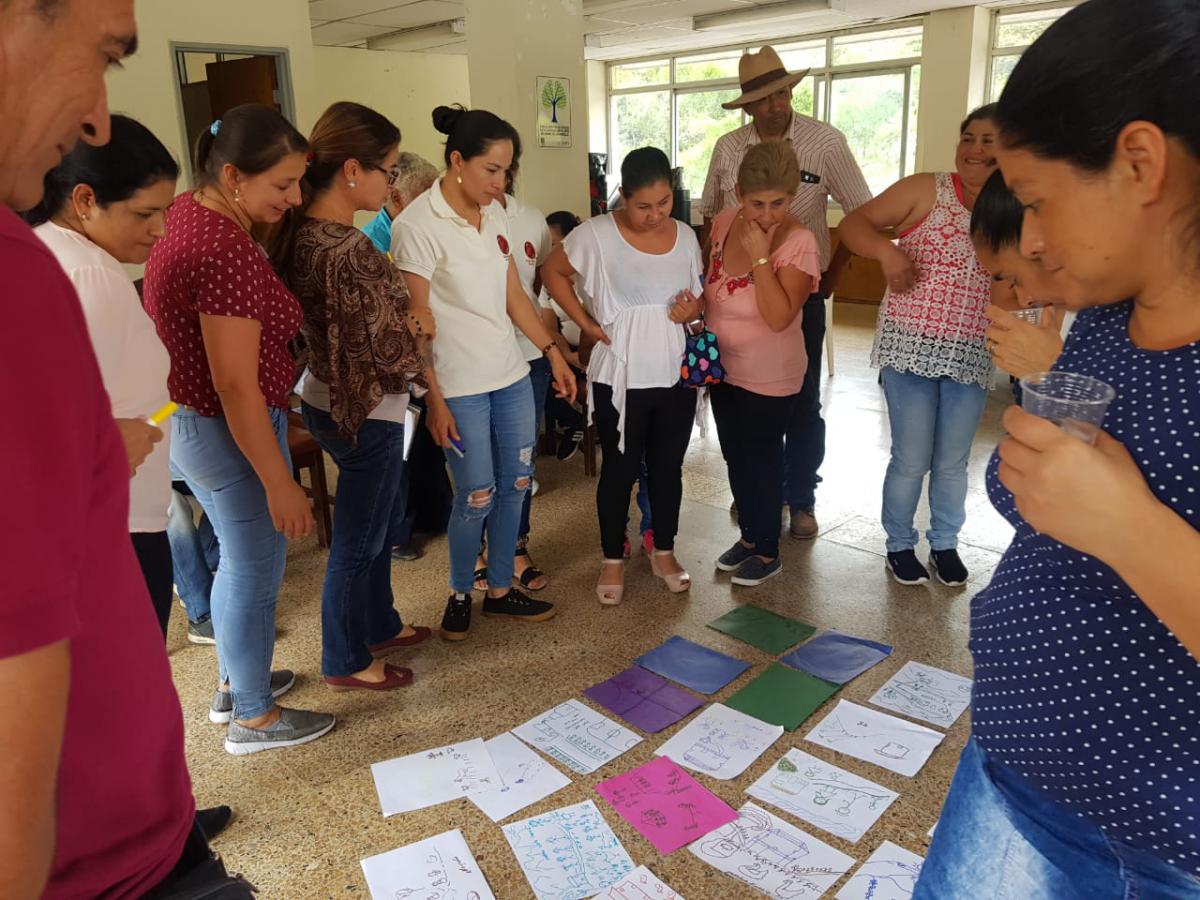
Leadership Skills for Life workshop participants in Colombia
According to the last coffee union elections in Colombia, female participation in Municipal Committees has increased from 16% to 24% between 2014 and 2018, and from 8% to 15% in Departmental Committees. While female representation in the guilds has grown, there is still a significant gap that needs closing to achieve equality in the sector. "There is a need to strengthen women's leadership, not only at the union level, but also in community-based organizations,'' says Claudia Cardona, coffee project coordinator at Solidaridad in Colombia. "Participation in the union sector can only be expected through the social and economic empowerment of women in the private sphere, among their families and communities."
Leadership skills for life
Making value chains more gender-inclusive is important to Solidaridad, as sustainable economic development cannot be achieved without the effective and equal participation and contribution of men and women. Various programmes are thus implemented, including the “Leadership Skills for Life” project in the coffee sector in Colombia. Designed by Solidaridad, financed by Advocafé, and validated by the National Federation of Coffee Growers (FNC), Caravela Coffee, ECOM and RGC Coffee, the project aims to train and empower more than 150 women in the coffee sector and their families in 2019.
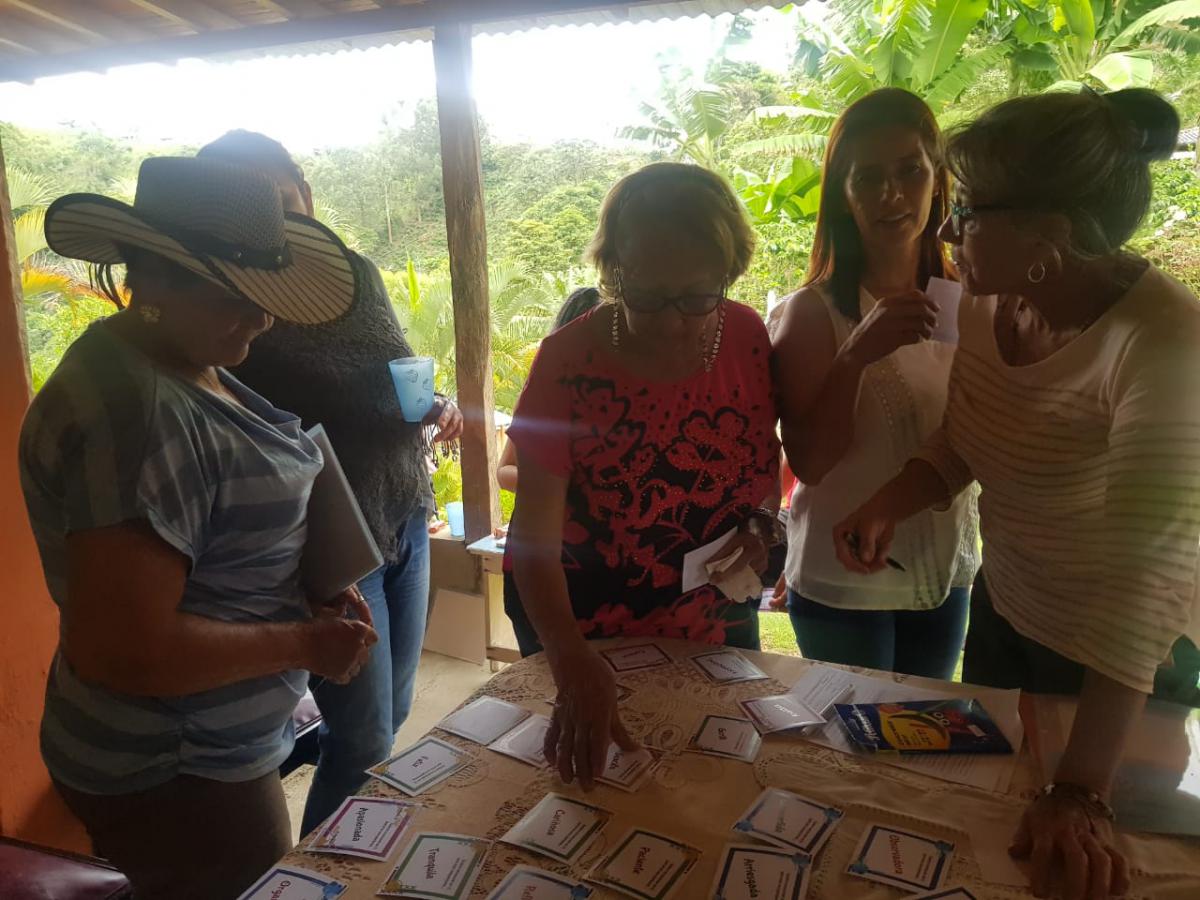
Leadership Skills for Life workshop participants – women working in the coffee sector – in Colombia
Solidaridad and partners are convinced that when gender imbalances are addressed, all parties involved benefit from creating a business case for investing in gender inclusivity. Ángela Peláez, manager of RGC Coffee in Colombia, puts it as follows: "If we want to bring about prosperity for coffee families, we must involve women. Families and communities where women participate in decision-making have greater options for progress. Women have a very important role; for example, in the transfer of culture: if we want to build supply chains that are sustainable in the long term, women play a fundamental role because they are the ones that pass on coffee traditions to their children. And they do not talk about their farm, they talk about their coffee business."
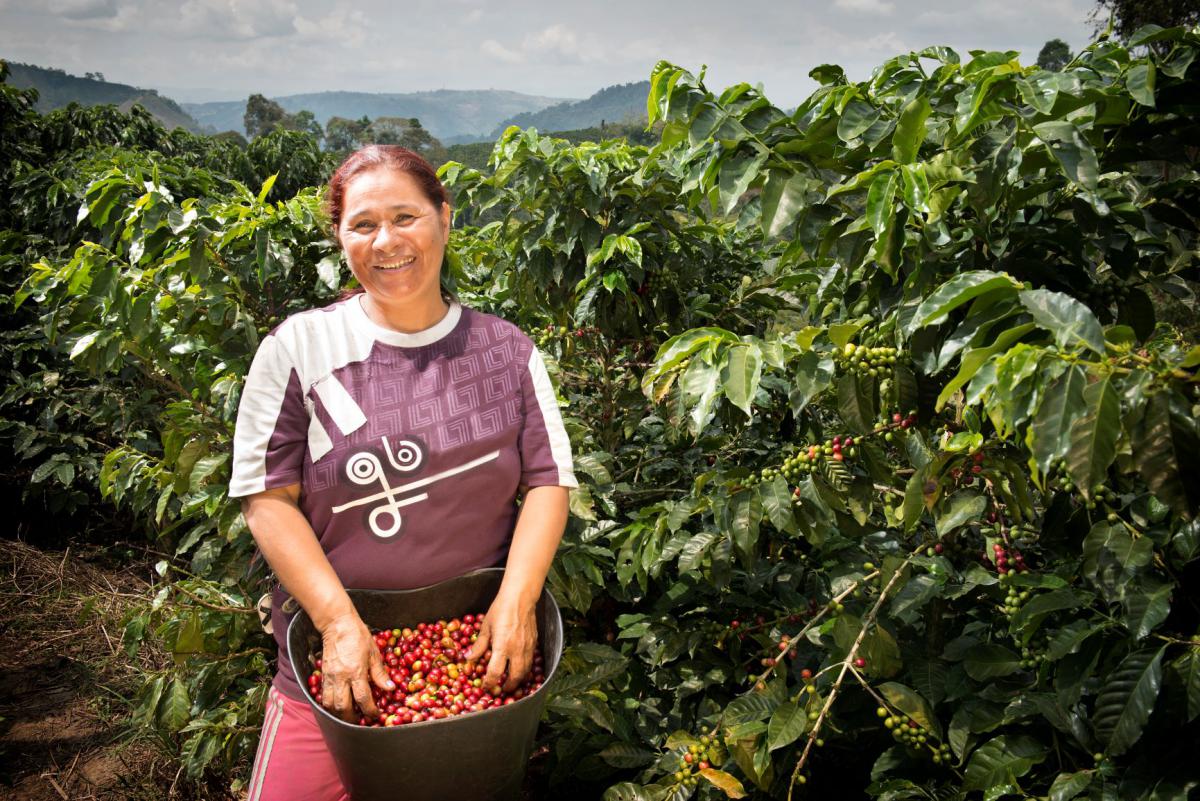
The Gender ABC in practice
To implement successful gender inclusivity projects, Solidaridad uses the Gender ABC implementation strategy. Gender ABC contains three building blocks. The first, is the Gender A: Analysing and addressing barriers to participation. It is important to take away practical and personal barriers for women to participate in economic and social life. For example, the first phase of the “Leadership Skills for Life” project consisted of trainings and a follow-up on the development of soft skills related to leadership among coffee producer associations with a high representation of women.
The second is the Gender B: Balancing power relations. This means changing the “rules of the game”; for instance, ensuring that women and men are represented equally in business organizations, like the unions. It could also entail changing formal laws and regulations to include men and women.
In this case, the second phase of the “Leadership Skills for Life” focuses on strengthening the political empowerment of female coffee growers, with the aim to achieve a better gender balance in union leadership positions, and to promote female participation in decision making at the local and regional level.
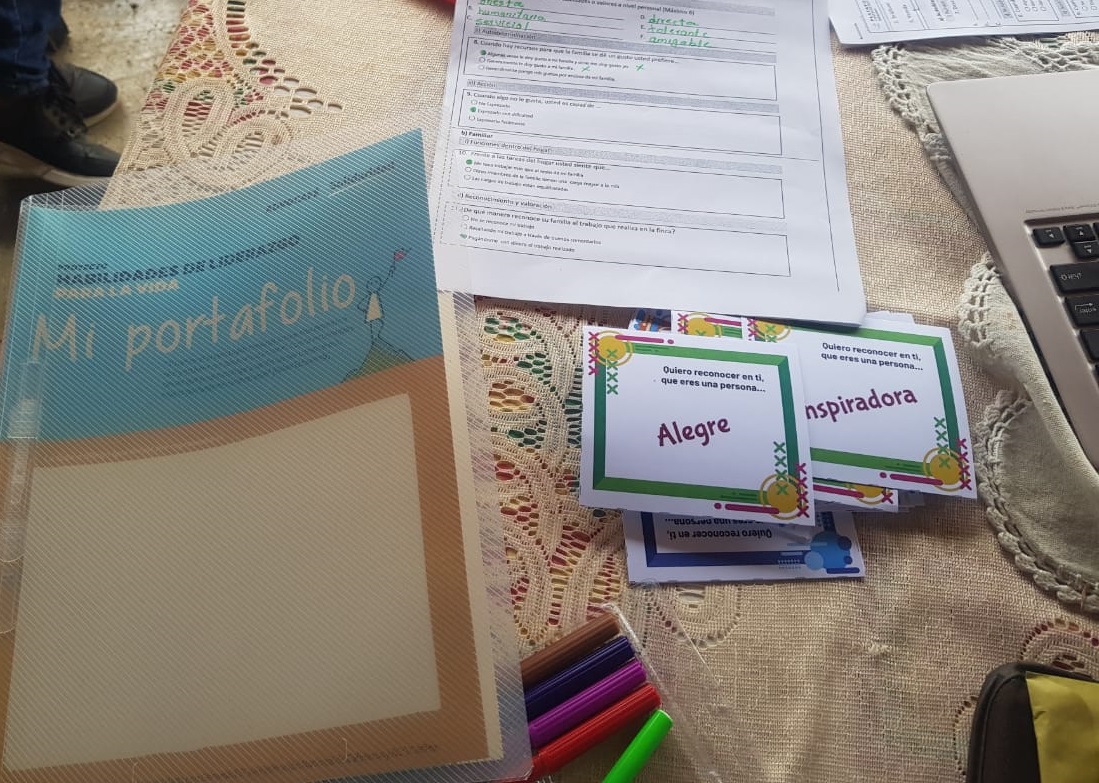
Workshop participants’ materials used in the Leadership Skills for Life project
The third strategy is the Gender C: Creating togetherness based on shared interests and values. This means that a project should address perceptions and social norms about gender, and foster dialogue between men and women to be more inclusive. This is done in the project by involving families, including husbands and children, in the workshops. "These leadership workshops have led us to understand that our farms are businesses that can generate more social value within the family and the community," said Luz Dora Castaño of the Celianenses Women Coffee Association.
Changing social norms and practices
A study conducted by Solidaridad on gender in the Colombian coffee sector concluded that addressing discriminatory social norms and practices is key to achieving equal representation in the sector. Namely, these norms and practices assign specific roles and responsibilities to men and women within the household and in business.
"It is still perceived as natural that men conduct productive activities and women reproductive ones. Female participation in the community, even as women increasingly occupy positions of power, is still largely attached to care-giving, something very typical of the reproductive field," says Claudia Cardona.
In a previous project with the ‘Las Rosas’ coffee association, families became increasingly aware of how deep these gender roles were rooted, and how important it was to redistribute tasks within the home and the family business.
The leadership workshops apply a similar approach: families make their own distribution of roles explicit and create opportunities for change in gender expectations that can be scaled to the community and union spheres.
“When we do these exercises we realize that women have not been valued, even when they complete and harmonize workspaces; even as they stand as the pillar of their families. In rural settings, this work is very valuable because it helps to recognize that family and business are a team effort, and because they promote each member’s contribution to it,” says Franklin Echeverry, a coffee grower of La Celia and former trade union representative of the Departmental Committee of Coffee Growers of Risaralda.
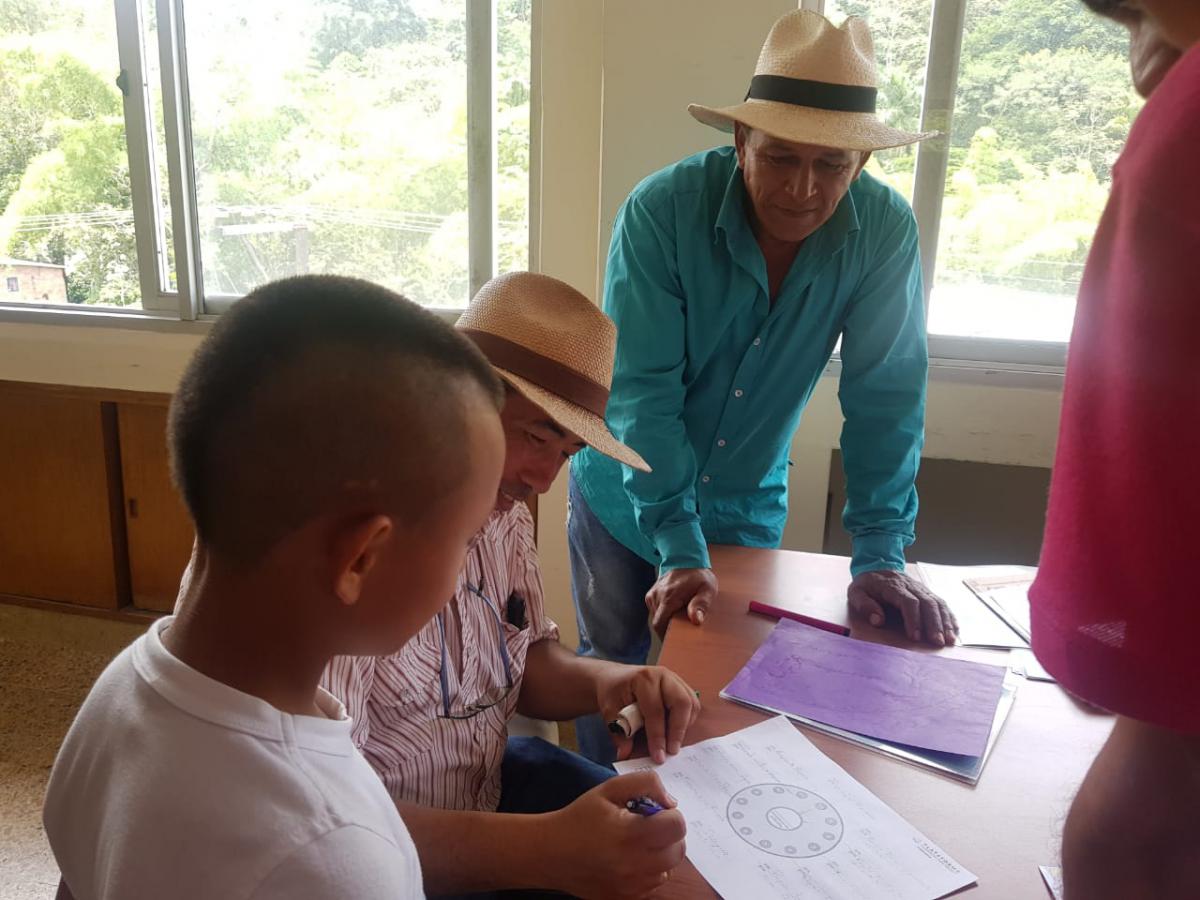
Leadership Skills for Life workshop participants in Colombia
From social and political to economic strengthening
The project workshops and trainings have already contributed to the social empowerment of women. "In these workshops, we acknowledge how valuable we are, that we are not only housewives but women who can contribute to society and strengthen our Women's Association," says Lucerito Martínez, one of the project's workshop attendees.
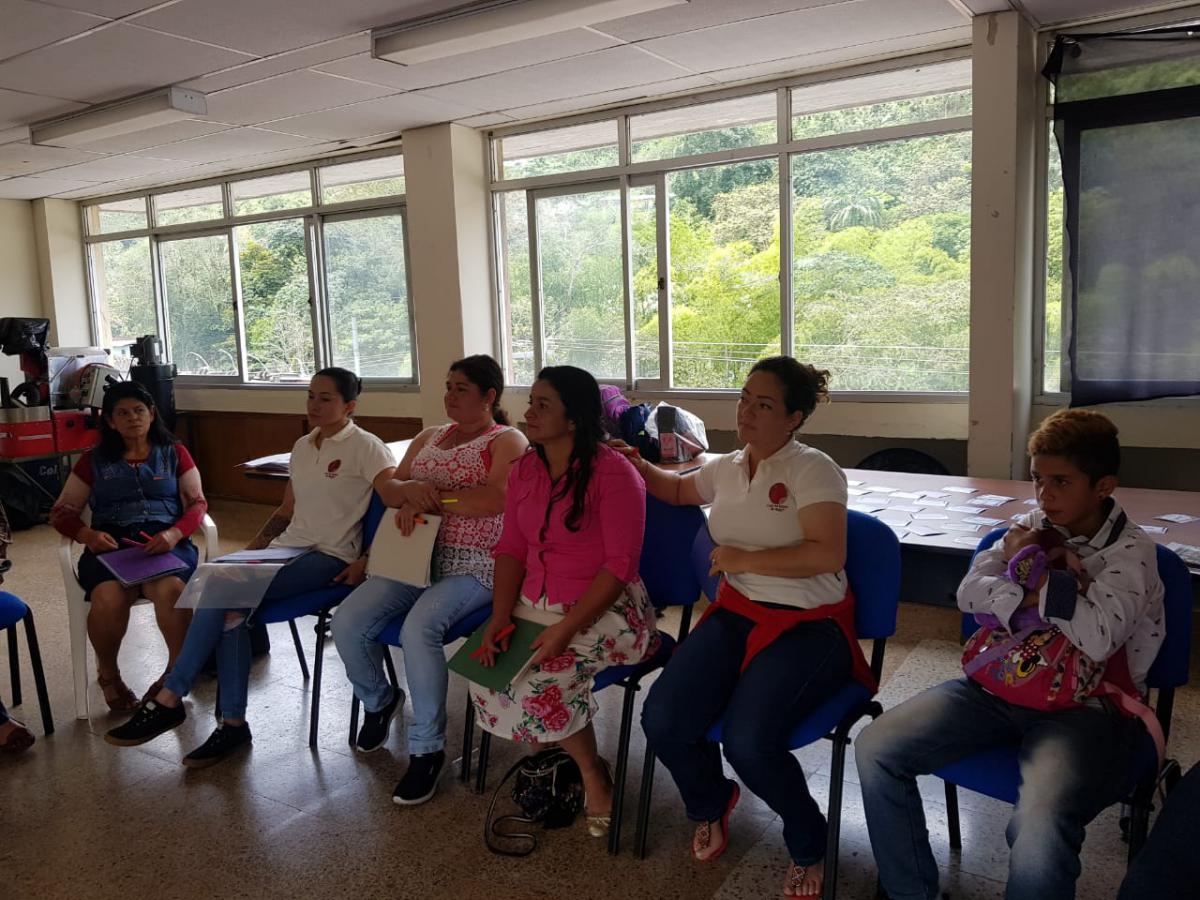
Leadership Skills for Life workshop participants in Colombia
Once women start harvesting results from their businesses -this has already happened in a previous project in Huila- their families begin to believe in them and their communities to support them. This generates an i
mportant change not only for women but for society and the economy as a whole to greater gender equality and more prosperity. This shows that social, political and economic empowerment are closely linked.
"Any work undertaken by women should provide a business case for them; trainings are wasted if they do not have the space to develop business opportunities and empower themselves economically. Providing support in leadership, and political and social empowerment, should go hand in hand with guidance towards obtaining an income", assures Ángela Peláez.
In this short video, two male Leadership Skills for Life workshop participants share some of their key take-aways from the workshop:
Considering that the inadequate representation and participation of women and youth in decision-making at governance level is a common scenario in both South America and worldwide, the spillover effect has huge potential. Some components of the programme, such as tools and facilitation experience, will be replicated to suit the context of other projects and integrated into the Gender Action Plan in other coffee programmes in the region as well as other value chains (based on the Gender Assessments findings).
Other experiences across the network
Across the globe, Solidaridad undertakes initiatives to empower women to take a leadership role: in business, the household, and community. For example, through the Better Mill Initiative in Ethiopia, the representation of women in the labour unions in garment factories has increased significantly. This has meant that union meetings with factory management now include issues of female workers on the agenda.
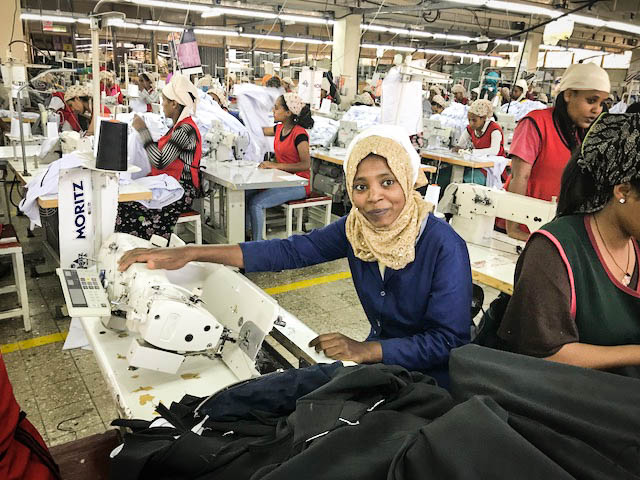
Mekiya repairs sewing machines in one of the textiles factories involved in the Better Mill Initiative (BMI) programme. As chairperson of the workers union, she discusses employees’ issues with the management
In Bangladesh, in the Sustainable Agriculture, Food Security and Linkages (SaFaL) programme, women have been able to set up successful agribusinesses after they received training in literacy, entrepreneurship and market dynamics.
Anchoring gender capacity in institutions is a recipe for success as it allows for the transfer of knowledge from institutions to communities, and ultimately to households. Leveraging on Solidaridad Network’s Advocacy for Change programme, the first step was to address the capacity gaps within different project teams. From there, various gender tools have been designed and implemented to support gender mainstreaming in the project.
Find out more about Solidaridad’s track record in gender inclusivity.
